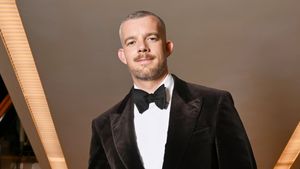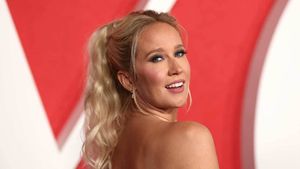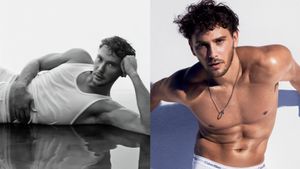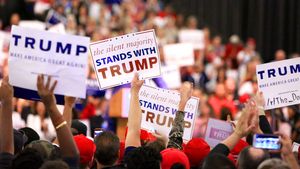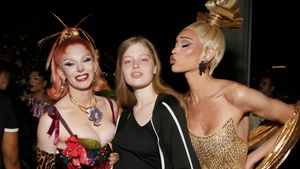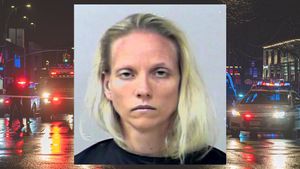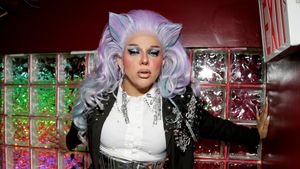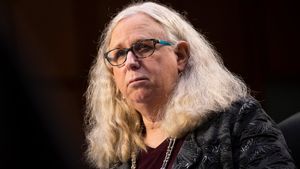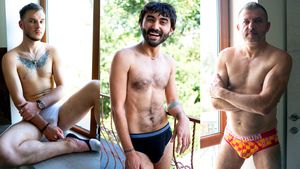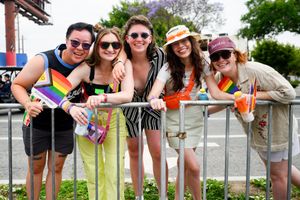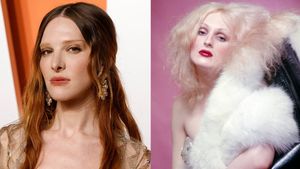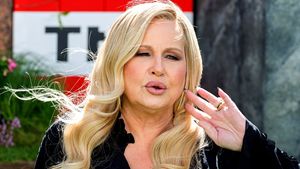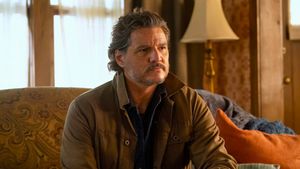The gay uncle (guncle) has become an integral part of the modern family dynamic in recent years, thanks to Modern Family and Insta gays. We’ve always been here, but thanks to our ever-evolving society, we’ve only recently been given the acknowledgment we deserve. There’s even a holiday in our honor! (Guncle's Day is the second Sunday in August.)
With 22 niblings (the gender-neutral term for nieces and nephews) in my life, I’ve always held them close to my heart and tried to be the best guncle I could be. Although there was no rule book, I tried to bestow upon them the camp cult classics, the socially inclusive guidance, and any other bits of wisdom they won’t likely learn from their heteronormative upbringing.
So, I was honored when I was approached last year to write the rule book I never had. The Guncle Guide is filled with sweet anecdotes, fun tips, and resources for everyone’s favorite family member, as well as the people who love him. It also features a preface by Daniel Franzese (Mean Girls, Looking, Party Monster), a foreword by Johnny Sibilly (Pose, Femme), and wisdom from other famous guncles.
Although my favorite part of writing the book was reminiscing about the moments with my niblings that impacted us most, I couldn’t finish the book without paying tribute to the chosen guncles in my life. Some queer people like myself aren’t fortunate enough to grow up with that kind of person to turn to in the family that raised them. But if you’re lucky, you’ll discover the importance of chosen family to our community.
I explored the topic in "Chapter 10: The Chosen Guncle," the concluding chapter of the book.

Read an excerpt from The Guncle Guide below:
One of the first chosen guncles in my life was Lucius, someone I’ve actually referred to as a “dad” (not daddy, those are stories for another time). But first I should tell you about Holly.
Holly was a bartender at Dick & Jane’s when I first started frequenting the establishment. She was always studying for med school behind the bar (she’s now a talented kickass entrepreneur in New Orleans). In addition to the great conversation she frequently provided, she offered some pretty decent guidance. At one point, I began jokingly referring to her as my mother. It stuck over the years, and she’ll refer to me as her son as well.
When I told her about my dreams of moving to New York City, she connected me with one of her oldest friends. She and Lucius were best friends since their days at Rutgers in the early ‘90s. Although our correspondence was mostly through Facebook for a while, I also began jokingly referring to Lucius as my “dad.”
It was Lucius who helped me get my first summer internship in the city, connecting me to his friend Brian, who worked in human resources at Christie’s Auction House. It set off a chain reaction, which helped me line up internships at OUT Magazine and Teen Vogue for the following summers. To this day, I credit Holly, Lucius, and Brian with jumpstarting my career.
In addition to his career guidance, Lucius also offered me my first couch to crash on when I arrived in Manhattan. He introduced me to the gay bars and kink shops of Christopher Street and 8th Avenue, and with it, the rich and vibrant queer community of Chelsea and the West Village that spanned generations.
He also invited me into the weekly tradition of Sunday brunch with the boys at The Dish. “The boys” consisted of the aforementioned Brian, who would offer a couch for me the next summer, Ray, the drag queen who lived in the basement apartment below Lucius, and Ray’s brother Daryl, a graphic designer who always carried a journal full of sketches and his daily haikus. If Lucius was a second father of sorts, they would become my chosen guncles.
They were frequently nearby for two-for-one happy hour drinks at Gym Bar or a glass of wine at Le Grainne, the French café on the corner of 21st and 9th, two doors down from Lucius’ apartment. It was a cozy little spot, frequented by our neighbors Ethan Hawke and Faye Dunaway.
Although nobody can agree on who it was, one of them taught me the “look-back.” It’s a trick from the ancient gay art of cruising, which was how queer people found casual sex long before the days of dating apps and gay bars as bachelorette party venues. The “look-back” (which I’ve also referred to as the “three-second-rule”) involves walking past a hot guy on the sidewalk, waiting three seconds and looking back. If he looks back too, he’s interested. It actually worked once when my phone broke, and I couldn’t get on Grindr.
The boys were also there for my twenty-first birthday, an evening that started innocently enough with my first (legal) drink at the historic Stonewall Inn. It then carried up to Hell’s Kitchen, where we barhopped with a cute boy with whom I was having a summer fling. The night ended with a late dinner that almost happened at the now-shuttered 24-hour New Venus Diner, where I ended up puking on the sidewalk outside before my food even came to
the table. Luckily, Lucius was there to put me in a cab home (and to make sure I remembered where home was).
Over the years, Holly, Lucius, and I would have sporadic family reunions in New York or New Orleans. If it was only two of us, we’d raise a glass to the other, who was always on our minds. The same went for the rest of the brunch boys whenever we were in the same city.
By the time I finished college and was ready to move to New York full-time, Brian had moved to Los Angeles. Shortly after, Lucius relocated to the Big Easy, where he was closer to mom. Ray and Daryl were still around, but I didn’t see them quite as much as when we had our standing brunch dates.
Although nobody could replace them, I soon expanded my chosen family. During my early days as a freelancer at OUT, I found a side gig as a waiter and barback at Barracuda, a gay bar that served as a Chelsea staple and a filming location for a scene from Sex and the City (if the name RickNinePlus rings a bell, you know what scene I’m referring to). It was one of those charming little hidden-away spots that hosted queer locals and tourists alike, with nightly performances by RuPaul’s Drag Race contestants-to-be.
The new side hustle also came with a group of happy hour regulars I quickly took to. Their near-daily patronage turned out to be more dependable than the L train service to Brooklyn. And it was a dependability that began to feel familial in a city where nobody knew their neighbor.
Michael was a fellow writer and bon vivant of sorts, who was married to Edmund White, one of my favorite authors who once belonged to the seminal Violet Quill. There was also Joe, a gay preacher, who had no issue participating in the often-inappropriate banter that ensued during a slow happy hour. Josh was the bartender I worked with most days, a sober tatted playful spirit who always kept the laughs coming.
Their company was a refreshing dose of queer community, a contrast from the late-night crowd, which was usually a bevy of hot guys with their faces glued to their phone screens. Slow days were more enjoyable when they were around, calling their unofficial salon to order over half-price cocktails. Although I was only at that job for less than a year before picking up more writing work, they left a mark I still fondly reminisce about.
It doesn’t take a supportive family or a stable home life to make a good guncle. We come in all forms, and we’re there when you need us most. Fairy godmothers may not be real, but we’re the next best thing.
The Guncle Guide is now available from Simon & Schuster, as well as other major book retailers.


























































































